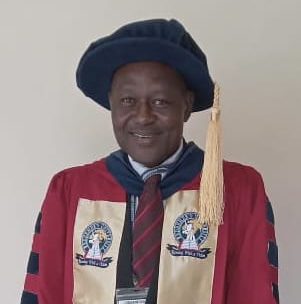
A lecturer at the Department of Private and Property Law of the Redeemers University, Ede, Osun State, Dr. Olaniyi Olayinka, criticized the Nigerian model of federalism, labeling it as “fake” and asserting that the 1999 constitution is detrimental to the nation.
Delivering his thoughts during the 4th public lecture at the College of Law of Achiever University in Owo, Ondo State, Dr. Olaniyi titled his talk ‘Nigeria Federalism and the Realization of the Objectives of a State.’
As the guest lecturer, Dr. Olaniyi emphasized that the militarization of Nigeria’s political landscape led to the erosion of federalism, resulting in the centralization of economic and political power.
He mentioned, “The governing party’s promise was to institute genuine federalism in Nigeria; however, former President Muhammadu Buhari did not uphold this commitment.
He highlighted, “This showcases a power dynamic where one individual holding authority obstructs the realization of the public’s desires.”
Furthermore, the lecturer argued that while the federal character principle aimed at promoting inclusive involvement in economic and political spheres, the President’s independence to disregard Federal Character Commission recommendations impedes the principle’s objectives.
Dr. Olaniyi added, “The commendable provisions of the federal character principle within the 1999 Constitution lose efficacy as they lack enforceability.
“Aside from legal obstacles to implementing the federal character principles in Nigeria, political hindrances stemming from ethnic biases are apparent.”
He also identified ethnicity, corruption in the public sector, compromised ruling and opposition parties as obstacles to effective governance in Nigeria.
“Ethnicity in Nigeria hinders productivity, as the government fails to ensure fair and favorable working conditions for all individuals and their families.
“Entities like the Boko Haram Sect, killer-cattle-herders, kidnappers, and saboteurs of people and properties are pardoned by the state, with a lack of resolve to prosecute those apprehended, undermining socio-economic and cultural progress,” he lamented.
Suggesting a pathway to address the nation’s socio-economic challenges and achieve authentic federalism, Dr. Olaniyi proposed the implementation of the 2014 National Conference report by the Federal Government.
“The 2014 CONFAB Report, which advocates for a genuine federation in Nigeria, should be revisited and executed.
“Ghana adopts a decentralized governance system ensuring effective and equitable local service delivery that citizens yearn for.
“Ghana manages horizontal inequalities between ethnic groups through the provision for conducting referendums,” he suggested.
